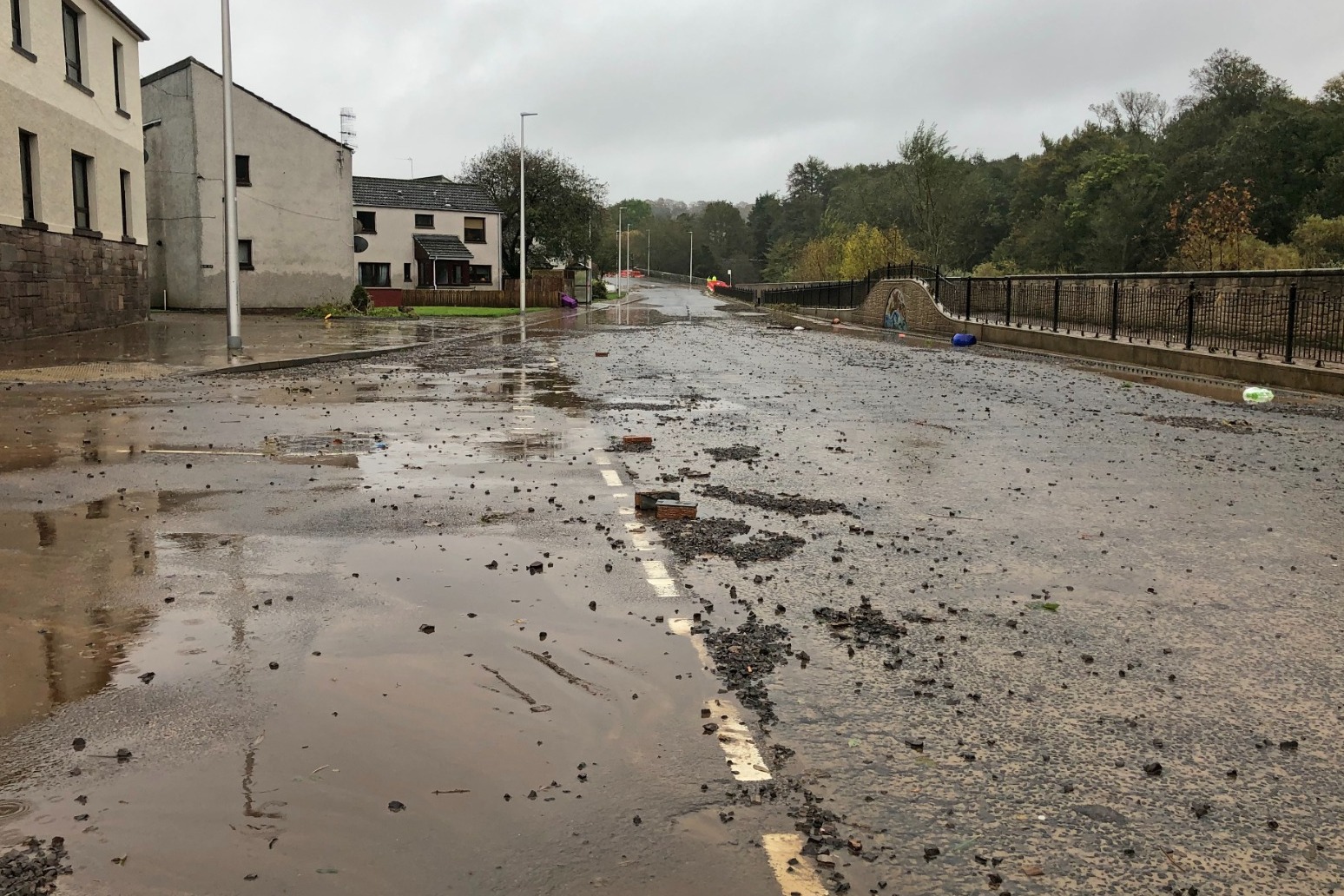
River levels will continue to rise, officials have warned, amid widespread flooding caused by Storm Babet which is posing a “risk to life” in some areas.
Three people have died since the storm first hit the UK on Wednesday, while a search continues in Aberdeenshire following a report of a man trapped in a vehicle in floodwater.
The Environment Agency said three severe flood warnings were in place around the River Derwent in Derbyshire, meaning deep and fast flowing water carries a significant risk of death or serious injury, as well as serious disruption to local communities.
More than 360 flood warnings – where less dangerous flooding is expected – are in place around much of England including the North East, North West, Yorkshire, Midlands and parts of the South East.
Scotland continues to bear the brunt of the bad weather and a second red weather warning – which also poses danger to life – has been issued for the second consecutive day for parts of Angus and Aberdeenshire.
In Wales, a severe flood warning has been issued for the village of Llandrinio, Powys, as well as isolated properties in the Severn-Vyrnwy confluence area.
Julie Foley, director of flood strategy and adaptation at the Environment Agency, said temporary barriers have been put up in the worst affected regions but flooding was likely to continue.
She told BBC Breakfast: “We’ve got a lot of water now moving through our river catchments, so we’re going to continue to see river levels continuing to rise.”
She added: “If you receive a flood warning that means you need to take action right now, it means there is an immediate risk and you need to keep yourself safe, your family safe, move precious belongings to a safe place, and listen to the advice of local emergency services, as well as do some basics like turn off your gas, electricity and water in your home.
“And if you receive a severe flood warning, that means there is a risk to life, and it’s very important that you listen to the advice if you’re asked to evacuate and take action. We’ve sadly seen over the last couple of days just how dangerous flood waters can be.
“It’s really important that people stay away from swollen rivers. It’s very, very important that people don’t drive through flood waters, all it takes is up to 30 centimetres of fast flowing water to actually move a car.”
The Energy Networks Association said around 100,000 customers had been affected by power cuts due to Storm Babet but as of Saturday morning 96% had been reconnected, leaving 4,000 still without power.
Around 55,000 people were left without power on Friday as a result of the storm.
Some 45,000 people were reconnected to the grid as of the evening, the Energy Networks Association said.
Leeds Bradford Airport remains closed after heavy winds forced a passenger plane to skid off a runway on Friday, although the airport said it was planning to reopen at 2pm on Saturday.
TUI customers who were due to travel from Leeds Bradford Airport on Saturday are being directed to Manchester Airport, the airline has said.
The Met Office said in a post on X, formerly Twitter, the highest rainfall total on Friday was 84mm in Sheffield, South Yorkshire.
Met forecaster Jonathan Vautrey told the PA news agency: “The focus of the rainfall from Saturday shifts back northwards over towards eastern and northern Scotland.
“Some parts of those areas have seen about a month and a half’s worth of rain already, but there’s another band that’s forecast to track its way northwards over the course of the night and push its way towards relatively similar areas.
“So there are further red and amber rain warnings in force for Saturday, with the potential to push those areas close towards two months of rain in the span of three days.”
On Friday, a man in his 60s died after getting caught in fast-flowing flood water in the town of Cleobury Mortimer in Shropshire.
Police Scotland previously said a falling tree hit a van near Forfar in Angus on Thursday evening, killing the 56-year-old driver.
A 57-year-old woman also died on Thursday after being swept into a river in the region.
Published: by Radio NewsHub







